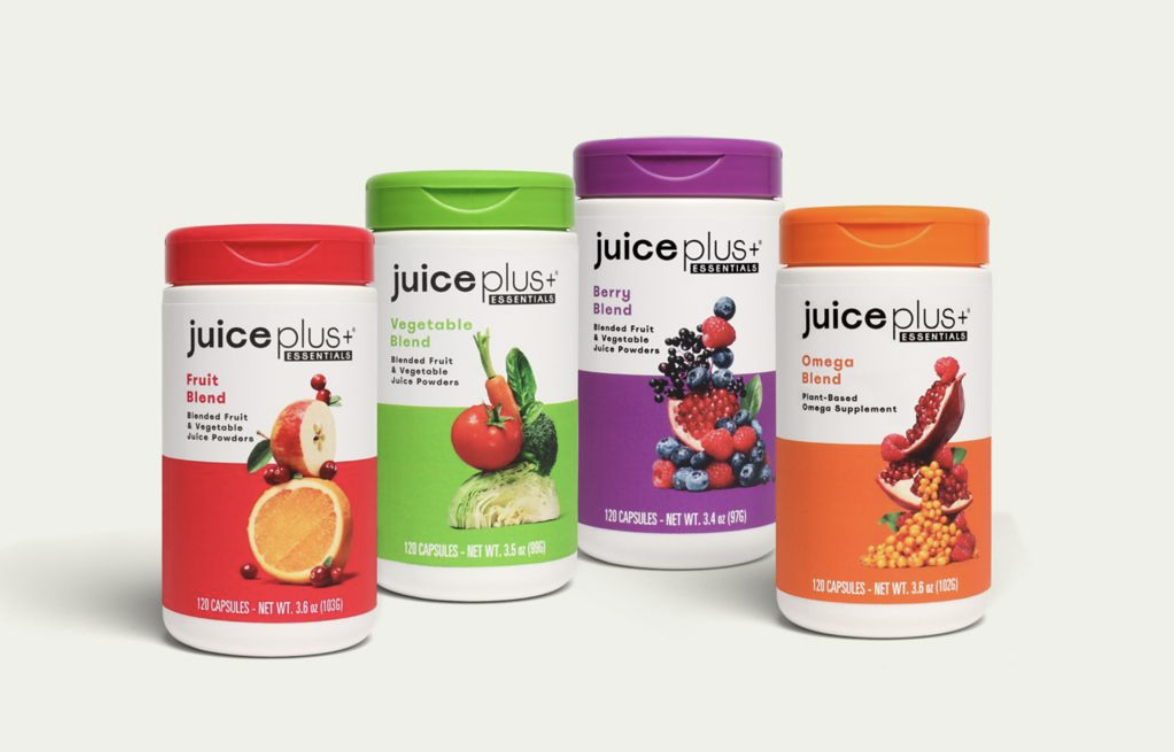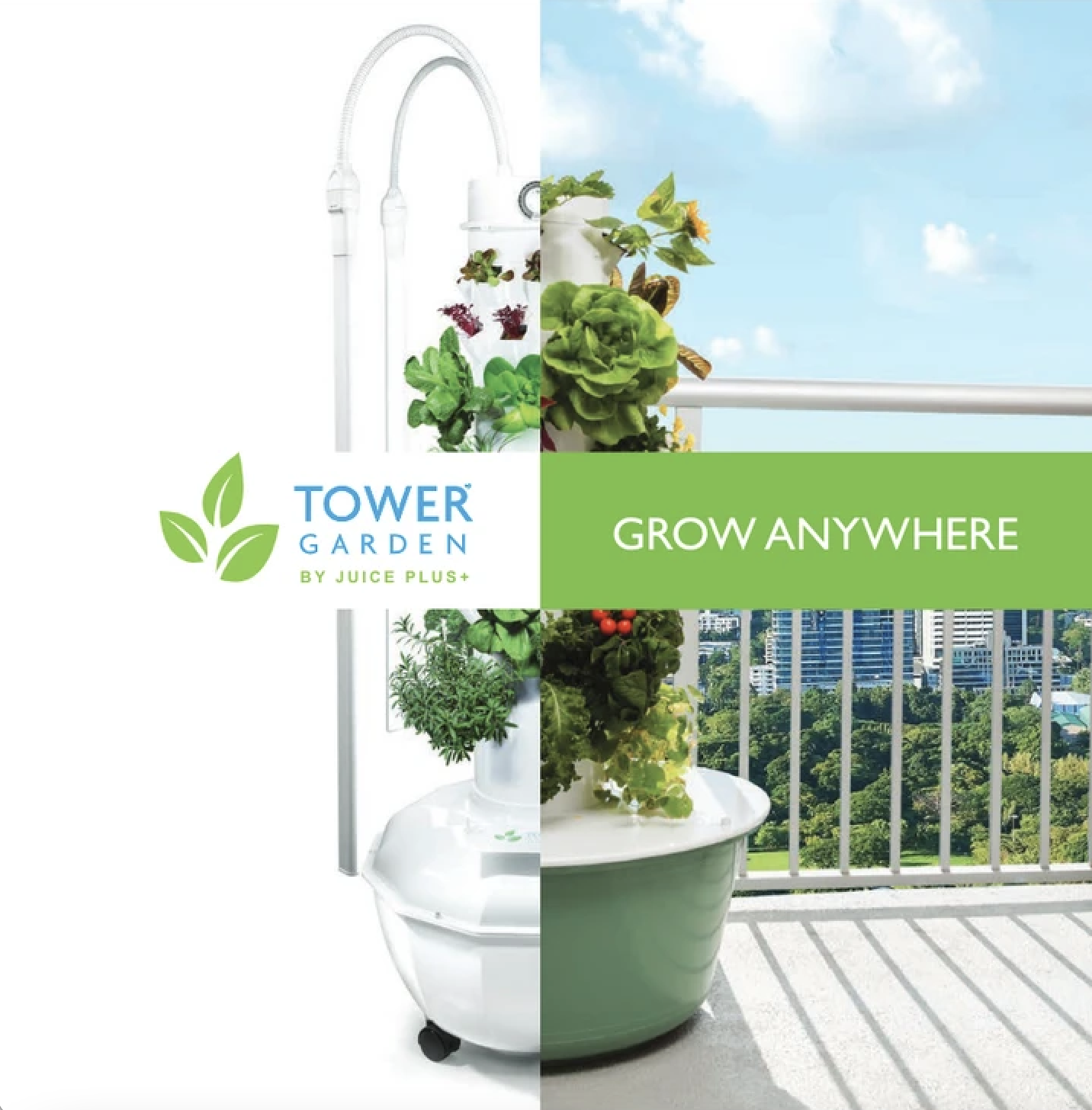
Eating fruits and vegetables are the number one consistent recommendation in almost every diet plan, nutrition guide, and fitness books. Organizations such as the U.S. Department of Agriculture, the World Health Organization, the American Heart Association, the American Cancer Society, and the National Center for Chronic Disease Prevention and Health Promotion agree that increasing your intake of fruits and vegetables have beneficial effects on health.
Click here to purchase JUICEPLUS+®
Juice Plus+® contains a wide variety of nutritionally dense fruits and vegetables reduced to juice powder concentrate using a proprietary process. Fruits and vegetables contain many phytonutrients, from such familiar vitamins as vitamin C and beta-carotene, to less widely known antioxidant compounds, including polyphenols and flavonoids. It also includes the carotenoids, beta-cryptoxanthin, and lycopene. Juice Plus+® Vineyard Blend provides added whole food based nutrition from Concord grapes and a wide variety of berries in convenient capsule form. Below are a few examples of the broad range of phytonutrients found in fruits and vegetables, but remember that there are many more than those listed here:
- Apple: Pectin along with a variety of polyphenols and other antioxidants
- Acerola Cherry: Vitamin C and anthocyanadins
- Cranberry: Flavonoid and phenolic antioxidants
- Orange: Vitamin C, folate, and several carotenoids including beta-carotene and beta-cryptoxanthin
- Papaya: Vitamin C, potassium, and several carotenoids including beta-carotene and beta-cryptoxanthin
- Peach: Vitamin C and several carotenoids
- Pineapple: Vitamin C and bromelain
- Tomato: Vitamin C, polyphenols, and several carotenoids including lycopene
- Oat Bran: Dietary fiber, vitamin E, several B vitamins, and minerals
- Beet: Folate, iron and calcium
- Broccoli: Folate, vitamin C, and several carotenoids including beta-carotene, lutein, zeaxanthin, and glucosinolates
- Cabbage: Vitamin C, folate, and glucosinolates
- Carrot: Several carotenoids including beta-carotene, along with vitamin E
- Kale: Vitamin C, folate, magnesium, and several carotenoids including beta carotene, lutein, and zeaxanthin
- Parsley: Vitamin C, folate, several carotenoids and flavonols
- Spinach: Folate, vitamin C, vitamin E, several carotenoids, iron, and calcium
- Brown Rice Bran: Dietary fiber, several B vitamins, and minerals
Tower Garden by JuicePlus+

Click here to purchase JUICEPLUS+®
The Many Benefits of Tower Garden
Why should you use Tower Garden rather than another growing method, and not just plant a few seeds in the dirt? Why even garden at all when you can buy produce from the grocery store or farmer’s market?
The advantages of Tower Garden can be summarized in three words: healthier, easier, and smarter. Here some of the benefits of gardening with Tower Garden:
Bountiful Harvests:
• Grows plants 3x faster than traditional gardening
• Increases yields by an average of 30%
Convenience:
• No digging
• No weeding
• Cuts down on grocery bills (pays for itself in about 6-12 months)
Food, Nutrition & Learning:
• Clean food
• Control over your food
• Nutrient dense
• Colorful produce
• Tastier & better smelling • Nurtures healthy habits
• Educational resource tool
Sustainability:
• Minimal water usage – uses as little as 2% of water as traditional gardening.
•Leaves a smaller CO2 footprint – reduce your carbon footprint by eliminating supermarket transit and storage.
•Uses only 10% of the land of traditional farming – the vertical design uses 90% less land normally required to grow produce.
• Recycles 100% of nutrients and water – Tower Garden uses a closed-system technology to recycle 100% of its nutrients and water.
•Reduces need for pesticides and herbicides – the pH-balanced ionic minerals and plant nutrients in the Mineral Blends produce strong, healthy plants that can better protect themselves from plant pests and disease—without pesticides.